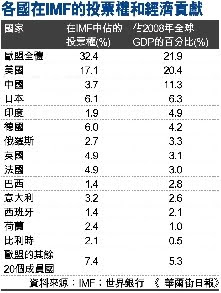Don’t Forget America’s Other War
Published Dec 19, 2009
From the NEWSWEEK magazine issue dated Jan 4, 2010
Remember Iraq? For months our attention has been focused on Afghanistan, and you can be sure that the surge will be covered exhaustively as it unfolds in 2010. But the coming year could be even more pivotal in Iraq. The country will hold elections in March to determine its political future. Months of parliamentary horse trading will likely ensue, which could provoke a return to violence. The United States still has 120,000 troops stationed in Iraq, and all combat forces are scheduled to leave by August, further testing the country's ability to handle its own security. How we draw down in Iraq is just as critical as how we ramp up in Afghanistan: If handled badly, this withdrawal could be a disaster. Handled well, it could leave behind a significant success.
(全文連結)
OUTLINE:
2010 could be a crucial year for Iraq
- The country will hold elections in March to determine its political future.
- Giving Iraq’s leaders a chance to resolve their political differences.
- All 120,000 American troops are scheduled to leave by August.
- Testing the country’s ability to handle its own security.
Political differences in Iraq
- Sunnis vs. Shias (They are fueling the civil war in the first place)
- Sunnis:A majority that has traditionally been the country’s elites.
- Shias:A relative minority that remains marginalized politically in Iraq.
- Kurds (They run an autonomous quasi state at north provinces.)
- They ignore Iraq central government’s authority regarding oil contracts by negotiating on their own and, in the same time, block the flow of oil out of Kurdish region.
- Disputes of drawing boundaries make situation more complex.
Challenge and Chance
- Iraq needs a stable power-sharing deal to keep all three groups invest in their new state.
- The U.S. should use their enormous political influences and leverage to help Iraq’s three parts reaching a compromise.
- Iraq could still become a remarkable model for Arab world.
Question:
- What do you know about Iraq?
- Should the America need to invade Iraq at the very beginning?Do we have the alternatives?







